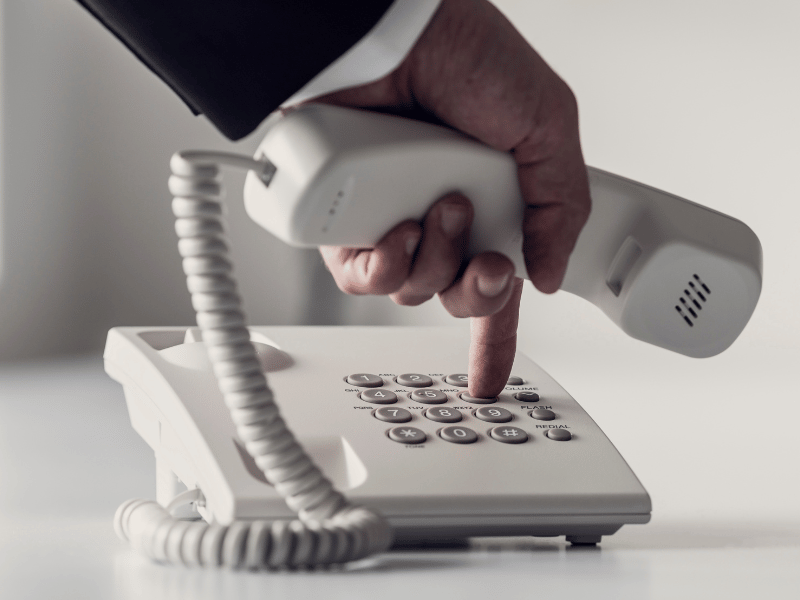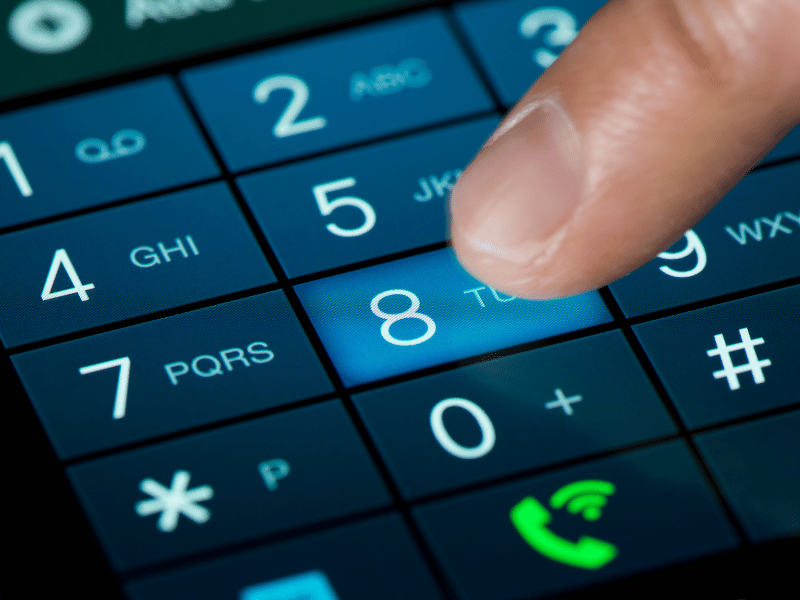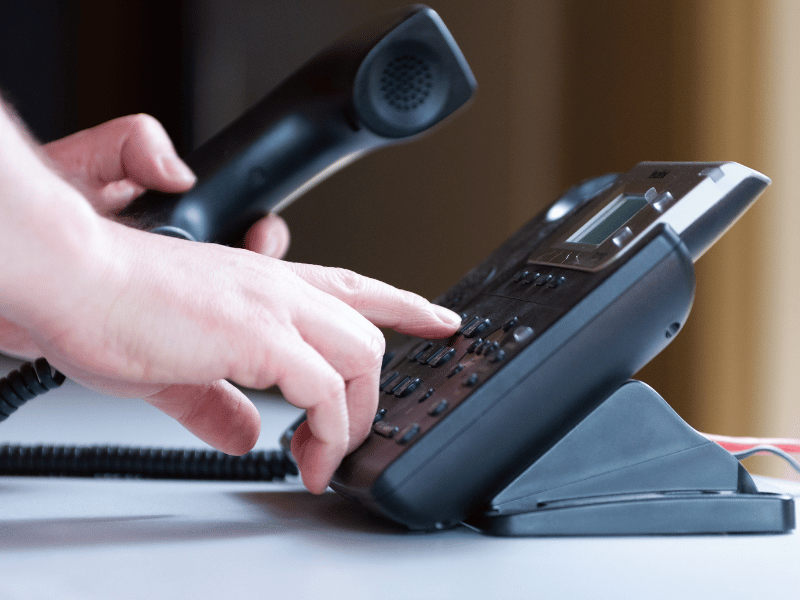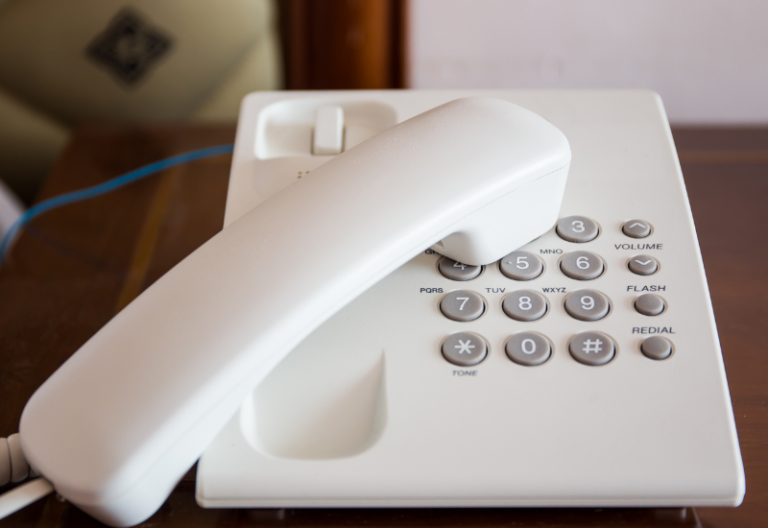The ability to make secure calls is an important concern for any business or individual. It is critical to understand that all phone calls, whether landline, mobile, or digital, are vulnerable to security risks.
This article explains the importance of securing communications and how you can protect your phone calls.
Table of Contents

Are Phone Calls Secure?
Are cell phone calls secure? Or are landline calls or VoIP calling more secure? These are essential questions. Customers often divulge personal information to businesses and healthcare providers over phone calls, which malicious persons may use for their own profit. For instance, customer service representatives might ask for your complete SSN (social security number) to verify your identity. Without the proper security measures, this data can be intercepted by attackers.
All phone calls, digital, VoIP, or analog, are vulnerable to different security risks:
- Telephony Denial of Service: flooding the communication network with a large volume of calls, disrupting call capacity
- Eavesdropping and interception: tapping phone lines, allowing attackers to listen in
- Social engineering: using psychological manipulation to extract private information from individuals over the phone
- Caller ID spoofing: showing the false number on the phone display
- Compromised private branch exchange: physically tampering with, tapping, exploiting outdated firmware, introducing malware, and remotely accessing PBX to extract information or make unauthorized calls
- Voice Phishing: using VoIP features to impersonate legitimate entities and extract sensitive information; a type of social engineering attack and scam
- Malware and software vulnerabilities: introducing malware to gain unauthorized access to VoIP systems
- SIM Swapping: switching a person’s phone number to a SIM card controlled by the attackers
- Non-subscriber phones: using unregistered mobile numbers to make anonymous calls to emergency services

Why Are Secure Phone Calls Important
A phone call is still a popular form of communication since, unlike email, it often gets an immediate response. However, given the number of phone call security risks, securing phone calls is highly important.
When you protect your phone calls, you also accomplish the following:
Protect sensitive information
Secure phone calls help protect private and confidential data. When you speak to your healthcare provider or a business over the phone, you might provide them with personal details such as addresses, medical history, financial information, and the like. You might discuss trade secrets and strategies with partners over the phone if you own a business. If malicious entities get hold of these sensitive information, they might use it for identity theft, fraud, and other scams.
Comply with legal requirements
Many regions have stringent data protection laws, and violating them can lead to penalties and monetary fines. The U.S. protects a person’s protected health information (PHI) through the Health Insurance Portability and Accountability Act (HIPAA). Europe enforces the General Data Protection Regulation (GDPR), which sets solid guidelines for collecting and processing personal information. Certain U.S. states also have strict data protection laws, such as the State of California’s California Consumer Privacy Act (CCPA), which gives residents more control over the personal information that businesses collect.
Maintain trust and reputation
Customers expect businesses to keep interactions safe and secure. Breaches can erode this trust and harm your establishment’s reputation. In March 2024, AT&T divulged that the personal information of 7.4 million current AT&T account holders and 65.4 former account holders were leaked on the dark web. NBC News exposed that leaked information included social security numbers and passcodes and might have also included full names, email addresses, phone numbers, and birthdays. This isn’t the first time the company suffered a data breach. FeganScott law firm reports that customers accused the company of negligence and breach of contract, leading them to file a class action lawsuit.

Best Practices for Ensuring Secure Calls
If you want to protect your phone calls against attackers, follow these important tips:
Choose trusted and secure platforms
Phone providers are not equal. Some go the extra mile to provide features such as encryption, multi-factor authentication, caller ID, and audit logs that help you protect data and comply with the law. For instance, HIPAA-compliant phone services may offer features such as business associate agreements (BAA) and AES 256-bit encryption for healthcare providers. Research and check for credible reviews from actual users, feedback from people you know, and data breach reports on national news.
Regularly update and patch the phone system
Did you know that neglecting to update and patch software can lead to data privacy violations? Update the firmware and implement patches regularly. These security measures protect against vulnerabilities and help you comply with federal laws.
Educate and train employees
Sometimes, data breaches that happen over the phone are an “insider” job. Staff become negligent or are unaware that their actions may result in compromising client data. Educating users about the importance of secure phone calls and how to recognize potential threats can help avoid this problem.
Ensure call security with iFax’s encrypted VoIP phone system for businesses.
Request a free demo today.





